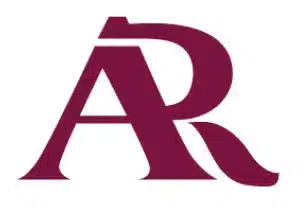Learning Skills for After Recovery

Learning Skills for After Recovery
Table of Contents
Challenges Facing Job Seekers after Addiction Treatment
Gaps in Resume
Gaps in your resume are the first challenge when job-seeking. Most employers don’t like to see more than a few months between jobs, especially if your career is rapidly changing, like technology and marketing. Plus, any gap in the resume is sure to raise a few questions.
Stigma Surrounding Addiction
The second challenge you’ll face is the public perception surrounding addiction. It’s worth noting that many medical officials understand that addiction is a disease. While that understanding is growing, it’s not widely adopted just yet. For now, recovery is a personal journey, and you should only share what you feel comfortable with.
How to Address Past Substance Abuse
Potential Employers Discriminating Because of Addiction
The ADA (Americans with Disability Act) or the FMLA (Family and Medical Leave Act) can apply in times of discrimination. The ADA prevents employers from firing someone solely due to their illness. In this case, it means it’s illegal for an employer to fire you based on your past drug use. However, if you were to show up to work high or do something in direct violation of the employer’s drug policy, ADA won’t apply. The FMLA prevents employers from punishing a person for seeking addiction treatment.
How to Build a Resume After Addiction Treatment
Addressing the Gaps
The best way to address the gaps in your resume is with brevity. Make your answers short and sweet, and shift the conversation back to the present or the future. A go-to phrase may sound something like this:
“At the time, I was working on my personal development. Now that I’m in a good place, I’m excited to move forward with the right company. I’m qualified in…”
Remember to mention your qualifications as they apply to the job, speak about what the job would mean to you and why you’re a good fit. Don’t worry too much about explaining your past if you don’t want to.
Preparing to Answer Questions
You’re in the interview, the potential employer is scanning your resume, and then they do the one thing you weren’t expecting – they ask you a question. (Yikes.) Suddenly, you can’t remember your name, let alone what job you’re applying for. It’s ok if you’ve felt that way – most of us have. The best thing you can do in the days before an interview is staging a mock interview. It’s best to do it with friends or councilors, but, in a pinch, you can do it alone.Prepare your answers to generic questions like, “Why do you want this job?” “Why should we hire you?” “Have you ever worked in this field before?” Roleplay answering these questions while you’re standing in front of the mirror. Don’t forget to focus on body language- be confident!
Preparing for Rejection
Rejection is a part of life – no matter who you are. It’s normal to take rejection personally, and sometimes it is. What matters most is how you handle it. Practice healthy coping mechanisms to deal with the sting of a denied job application. Do your best to learn and grow. If you’ve sent out at least a handful of resumes and haven’t scored an interview, it may be time to tweak your resume.
As you continue to improve your resume and interview answers, finding a job is all but guaranteed.
How to Address Past Substance Abuse During Your Job Search
Temp Agency
Temp agencies are a great place to start when completing rehabilitation. Many temp agencies offer entry-level positions to help you get your foot in the door with an employer. When it comes to sharing your history, it’s always a matter of choice. The same is true for any employers the agency assigns you.
Freelance
Freelance jobs have an ever-shifting marketplace. As such, most employers won’t delve too far into your past. If you can provide samples of past work combined with proof of current capabilities, finding freelance work shouldn’t be too difficult. If you’re unsure if you can handle full-time freelancing, then obtain a 9-5 job and build your freelancing slowly.
Service Jobs
Service jobs like waiter, warehousing, or cashiers often provide stable, albeit busy, environments in which to work. The repetition of the day-to-day may help you stick to your post-rehabilitation routine without adding undue stress.
Volunteer Work
Volunteer work is another excellent option to network, gain references, and beef up your resume without having to reveal too much information about your past.
Can You Get Your Old Job Back?
Disability Laws – Federal
The ADA kicks in for any individual that has recently completed a drug rehabilitation program. This protection means that employers can’t deny your application based solely on your treatment and history. However, some employers may have a no rehire clause for employees who were let go under less-than-optimal conditions.
Disability Laws – Ohio
Under the ADA, if an employee requests time off to seek medical help for a disability, the employer cannot terminate them – this includes drug treatment. Also, the time it takes to complete a program may be covered under the FMLA.
What to Do if You Feel a Potential Employer is Discriminating
If you think your employer is discriminating against you, then reach out to one or both of the following offices.
Federal Resource
Equal Employment Opportunity Commission (EEOC)
P: 800-669-4000
Contact the EEOC within 300 days of the incident.
How to Address Substance Use and Addiction Treatment on a College Application
Honesty
Honesty is best if you choose to touch on your past substance use in a college application. Be concise but be sure to explain why you started abusing substances and the headspace you were in at the time. Be sure to draw clear lines between who you were then and who you are now to highlight your personal growth better.
Highlight Recovery as Proof of Resolve
Don’t be afraid to use your past to your advantage. Addiction is a lifelong journey. But the fact of the matter is – you made it through the worse. Be proud of yourself and phrase it accordingly.
Collegiate Recovery Programs
Not all colleges offer recovery programs. However, they have been shown to increase school retention during recovery from substance use.3 Confer with your college for more information. Arrow Passage Recovery offers recovery options for all walks of life. Contact us to learn about your options.
How to Find Housing after Substance Use and Addiction Treatment
Recovery Housing
Recovery Houses are perfect for those of us whose home environment is too chaotic for healing. Typically, entrance is based on referrals from a rehabilitation program.4
Permanent Supportive Housing
Also known as PSH, these houses are run by local nonprofits. Contact your local government benefits office for more information.
Scheduling and Transportation to Medical Appointments
Following up with your post-rehabilitation plan can be tricky without transportation. Here are some resources that may be able to help:- Your treatment center
- Churches or nonprofits
- Taxis or ride-sharing services
- Public transportation
The Challenge of Probation and Parole Officers
The Importance of Keeping These Appointments
Skipping out on your parole officer or violating your probation can lead to lengthy jail time and harsher sentencing. Going to jail increases the risk of relapse, fractured relationships, and generally, stalling your development. Make your appointments with your parole officer to avoid this.
If You Are Having Trouble Talk to the Officer
Your parole officer is there for a reason. Use them as a resource. Discuss the challenges and stressors you’re facing. They’ll be able to help guide you and provide the tools to start fresh.
Call Your Treatment Center for Help
Reach out to your treatment center if you have difficulty finding help or want to reconnect with your team. If you’re in treatment, then an extension may be an option. Use all the resources at your disposal. No one overcomes addiction alone.
Resources
- https://disabilityrightsohio.org/employment-discrimination-rights-remedies-frequently-asked-questions#q17
- https://disabilityrightsohio.org/employment-discrimination-where-to-go-for-help
- https://www.ncbi.nlm.nih.gov/pmc/articles/PMC4852860/
- https://www.samhsa.gov/sites/default/files/housing-best-practices-100819.pdf
- https://endhomelessness.org/resource/housing-first/















